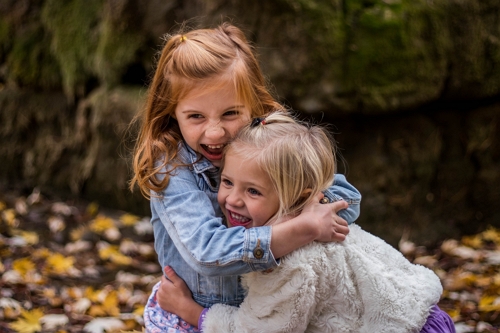How to Help Your Child Make Friends
We all hope our kids will be happy, confident, and successful in establishing new relationships in adult life. But at the heart of this aspiration lies a fundamental desire: The opportunity to watch our small children making sincere friendships.
This is because friendship enriches their life today and provides the basis for future interpersonal relationships. Yet, the compelling question remains: What can we do, as parents, that may enhance our child's ability to make friends?

Yes, perhaps in the foresight, this will look like a complicated puzzle, a field where we can provide only partial clarifications. However, the route toward friendliness relies on the establishment of pertinent emotional as well as personal and social competencies – parents' vital contribution.
With that said, let's now look at some helpful tips and secrets on how to help your child make friends.
5 Tips on How to Help Your Child Make Friends
1Start at home: Learning relationship skills
Building relationship skills helps your child develop the confidence they need to venture into the broader field of making new friends.
One of the strongest and core keys to assisting your child to make friends is just inside your house. The goal is not only to ensure your kids live in a loving and supportive home environment but also to instill the necessary relationship skills that will shape them into adults capable of navigating their way through the world of making and maintaining friendships.
These skills include things like:
a) Empathy:
Empathy is the core basis of human connectivity, and it starts at home. Teach every family member how to treat others equally, as it is only right. Your children are watching; they see more than words and watch what you do. Your child will learn from you how to be kind and compassionate to people if you lead your family by setting an example of empathy.
b) Curiosity About Others:
Curiosity is another key skill. Develop a culture of sharing and exchanging ideas among family members. It fosters interest in others and trains the child to listen actively, which is crucial for creating and sustaining friendships.
c) Communication Skills:
Communication skills are also becoming a concern in this contemporary digital age. The relentless pull of gadgets could obstruct such vital skills. This calls for switching off the devices during family dinners and encouraging conversation among family members, real conversations instead of texting. In this way, you demonstrate the importance of a real conversation and an actual personal connection for a toddler.
d) Cooperation:
These are skills developed by working together. Involve your child in family projects, play games with them, and make them participate in house chores. Through this exercise, they learn the importance of group work, taking turns, and accepting that each person has a role to play in creating long-term relationships.
e) Emotional Control:
Your child will likely experience a stormy mixture of emotions as they grow up. Hence, its capacity to regulate emotions becomes apparent here. Help your child comprehend their emotions and show them ways to control and express their feelings healthily. Such skills enhance their emotional intelligence, enabling them to deal with intricate human matters and situations effectively.
f) Apology and Forgiveness:
Teach your child how to say sorry, forgive, and accept apology. Teach them how to recognize the need to apologize, forgive, and admit mistakes under the empathy umbrella. These skills are essential since they help harmonize issues within families, settle conflicts, and maintain cordial relationships outside homes.
Remember, these lessons apply not only to how your family interacts but also to how you and your partner communicate with or about other people in the presence of your children.
2Make Interactions Easier: Shared Interests and Activities
When it comes to interaction, we often come across people who do similar tasks or are in the same social group. This also applies to little kids. The fact is kids bond well and efficiently when interacting with kids in activities they like.
This is your role as the guide, ensuring that your children identify shared interests and activities with their peers to find common ground. To do this, you should:
- First of all, register your kid to participate in sports and other activities they like. The process of making acquaintances is less intimidating because by participating in these hobbies, children automatically find like-minded peers.
- Familiarize yourself with the parents of your child's friends; for instance, invite them out for a meal. The setting allows children to socialize in a relaxed manner, which cultivates friendship within them.
- When planning for play dates, choose fun and collaborative activities such as baking, visiting the park, or visiting a museum. Such similar experiences can also serve as starting points for their conversations or means to create a reliable friendship between them.
However, the objective is to create a foundation that will facilitate the formation of social relations that will be approached willingly and confidently to create friendships in a simple way.
3Guide Don't Hover: Avoid Helicopter Parenting
Don't hover around every activity your kids do. Step back a little and let them have genuine organic interaction. However, if there is any problem, step in and help solve it. Balancing guidance and autonomy is the main objective. Here are some key points to consider:
- Don't Hover: The term hovering refers to excessive involvement and/or overprotective behavior in your child's social interactions. This may make your kid uncomfortable or even have embarrassed them. By preventing this behavior, you give your child a chance to know how to start a conversation and sustain interaction with their peer without being closely watched.
- Exception 1: Lack of Interaction: If the children never interact or appear unsure how to relate, you can offer suggestions for some appropriate activities. Here, you must act as a facilitator and gently prod them to overcome their ice. After you have engaged them, you may step back and leave them to work independently.
- Exception 2: Conflict: It is necessary to step in quickly, especially when there is fighting or being mean from any side, and indicate that this is unacceptable. Your intervention is crucial for creating a safe and respectful environment. It also educates your child on the proper boundaries and how to resolve conflicts positively. In turn, they lead the Gaol as needed and move away when the children appropriately handle their peers.
4Provide a Secure Social Environment for Socially-Anxious Children: Helping Shy Kids
Children with social anxiety are often terrified about making friends and socializing. Thus, this tip is critical in making the social environment safe for them to provide confidence and skills to make friends.
Here's how to achieve this:
Sensitive, Responsive Parenting: Sensitive and responsive parenting is essential for children with social anxiety. These children must be assured that their parents will always be there for them, especially when needed. Such kind of parenting promotes a secure attachment that will provide the basis for their confidence and independence later on.
Addressing Anxiety: When a child is dealing with a lot of anxiety, this anxiety may become a filter through which the child sees the world. If anxiety is not checked, it can cause persistent emotional problems, which can, in turn, affect social skills and make it difficult for a child to interact with others. Addressing this anxiety is vital.
Seek Professional Help: If your child suffers from considerable anxiety, you might need to approach a medical doctor or a school counselor regarding your concerns. Clinical anxiety in children has also been treated successfully through child psychologists with therapy practices like cognitive-behavioral therapy. It enables correcting a child's misconceptions and excessive emotional reactions, replacing them with more effective strategies for adaptation.
Real Threats: Sometimes, the perceived threats are real. Such behaviors as violence and aggression can be caused by different circumstances in your child's community. Therefore, taking appropriate measures to improve the child's environment in such circumstances is essential. They may also focus on issues relating to violence, harassment, and bullying, among others. In addition, it would be beneficial for your child to join a club or playgroup that is warm and secure.
Overall, it is essential to be aware that social anxiety is a threat and the best way to deal with real threats within their environments. You also need to create social outlets that will work towards overcoming the anxiety in these kids to be able to make friends confidently.
5Note: Every Child Is Different
Our final tip underscores the need to realize and honor each child's individual social learning. However, what does it actually mean? We primarily categorize this tip into 3 main groups:
Shyness vs. Introversion:
Shyness is a temporary condition resulting from discomfort in social situations, while introversion is a personality type where one may find solace in solitary existence or smaller circles. We need to appreciate these disparities and avoid conflating introversion with social withdrawal. Some children may not avoid other kids; they simply love to play alone with small groups of children.
Provide Opportunities:
All children should be able to make friends even if they are introverted. Different social limits and preferences aside, providing a setting in which they can interact with others at their own speed is necessary. We advises that you gauge your child's comfort level and adjust your expectations likewise. Some children might be satisfied if only one social activity that they like happens to them every week.
Realistic Expectations:
In this regard, we advises parents not to use children as a means of meeting their socio-economic desires or expectations. There is a need to keep things in proportion. A child does not have to be the most popular or talkative student in a class. A good child's social development may simply come from just one to two good friends.











Leave a Reply.